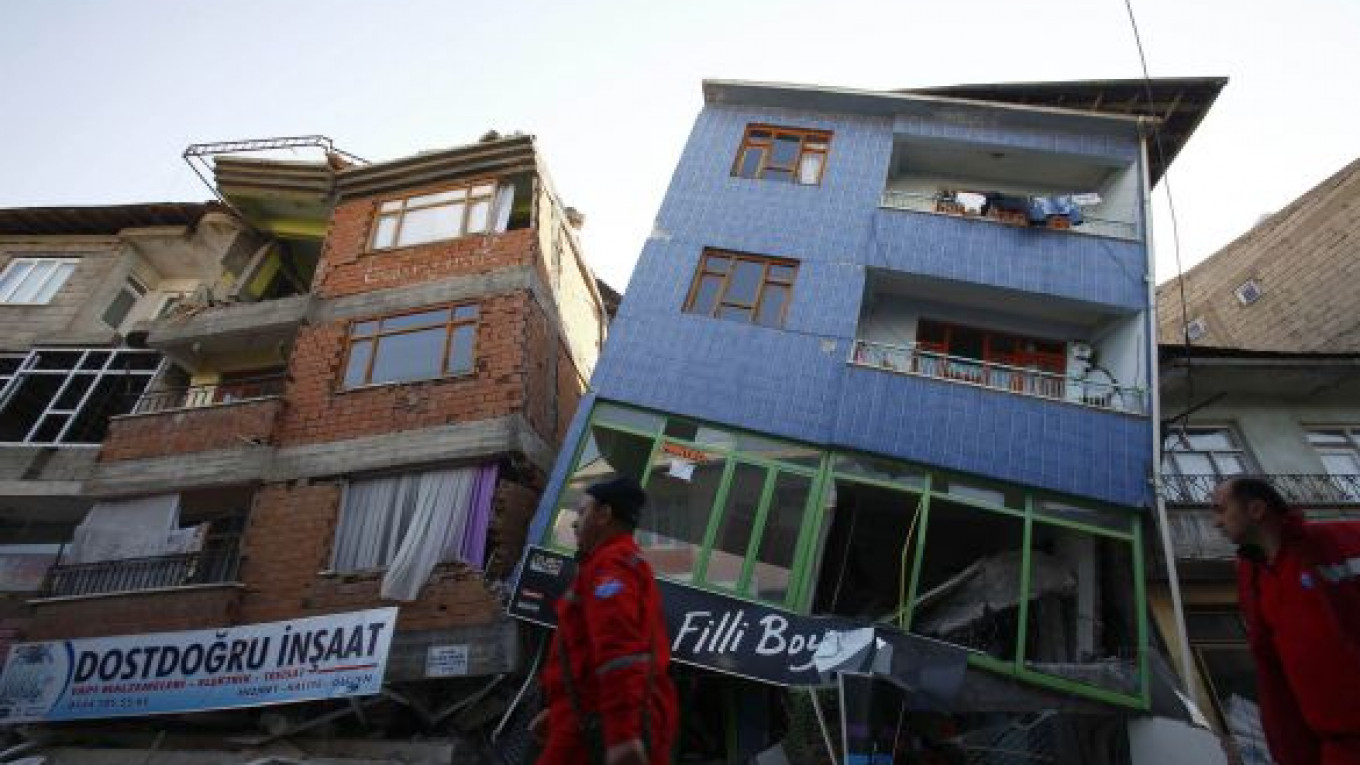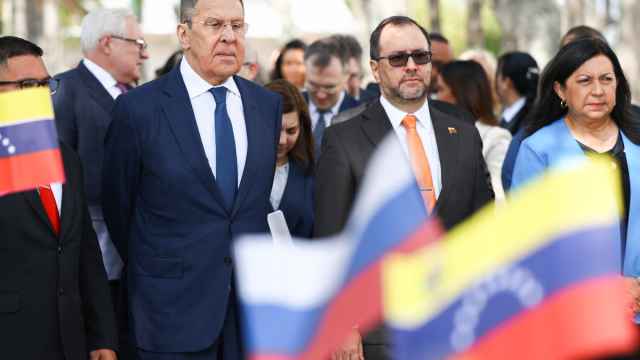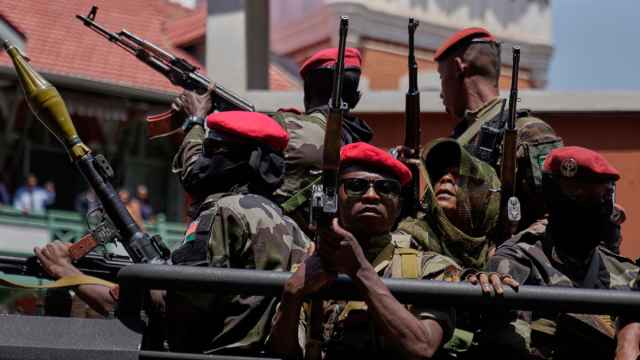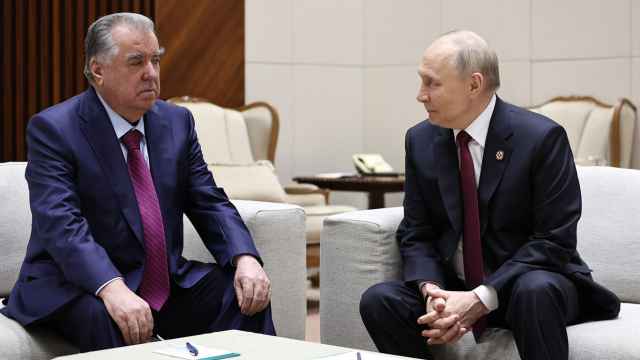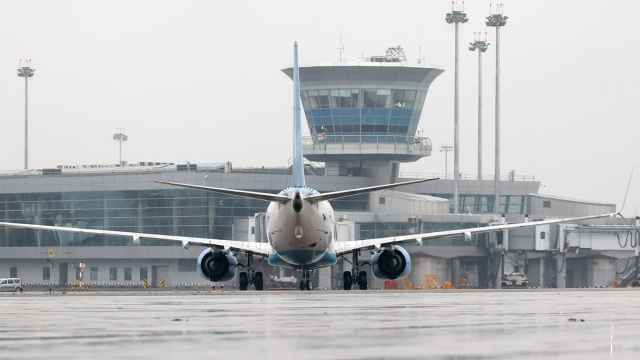Russian tourists continued to arrive in Turkey despite aftershocks from a 7.2-magnitude earthquake that leveled buildings and killed some 270 people in the country's east, a leading tour operator said Monday.
The quake-hit Van province is far removed from popular tourist destinations, Anna Podgornaya, of Pegas Turistik, told Interfax. But she conceded that a lot of worried clients are calling in with questions about Turkey's geography.
Dozens of people were trapped in mounds of concrete, twisted steel and construction debris after hundreds of buildings in two cities and mud-brick homes in nearby villages pancaked or partially collapsed in the quake that struck Sunday afternoon.
More than 100 aftershocks rocked the area Monday morning, with three of them reaching magnitude 4.7, after another 100 aftershocks reverberated Sunday.
The worst-hit was Ercis, a city of 75,000 close to the Iranian border that lies in one of Turkey's most earthquake-prone zones. The bustling, larger city of Van, about 90 kilometers south of Ercis, also sustained substantial damage, but Interior Minister Idris Naim Sahin said search efforts there were winding down.
Sahin said Monday that he expected the death toll in Ercis to rise, but not as much as initially feared.
President Dmitry Medvedev and Prime Minister Vladimir Putin expressed condolences on Monday. They also offered Russian aid, as did leaders of several other countries, including Azerbaijan and Iran, as well as Israel, Greece and Armenia, which have strained relations with Turkey.
The Turkish government declined all offers, saying Turkey was able to cope for the time being.
(MT, AP)
A Message from The Moscow Times:
Dear readers,
We are facing unprecedented challenges. Russia's Prosecutor General's Office has designated The Moscow Times as an "undesirable" organization, criminalizing our work and putting our staff at risk of prosecution. This follows our earlier unjust labeling as a "foreign agent."
These actions are direct attempts to silence independent journalism in Russia. The authorities claim our work "discredits the decisions of the Russian leadership." We see things differently: we strive to provide accurate, unbiased reporting on Russia.
We, the journalists of The Moscow Times, refuse to be silenced. But to continue our work, we need your help.
Your support, no matter how small, makes a world of difference. If you can, please support us monthly starting from just $2. It's quick to set up, and every contribution makes a significant impact.
By supporting The Moscow Times, you're defending open, independent journalism in the face of repression. Thank you for standing with us.
Remind me later.


